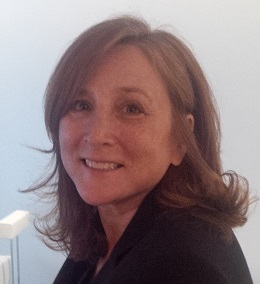
By Sarianne Gruber, Senior Consultant, Encore Health Resources
Twitter: @subtleimpact
The New York eHealth Collaborative hosted its fourth annual Digital Health Conference at New York City’s Chelsea Piers on November 17 and 18. There I was joined by 850 health-related professionals to listen, engage and see how life science meets digital technology. No doubt we have become a digital culture. Even seated on an airplane, I noticed the gentleman next to me wearing a Fitbit, and we strike up a conversation on step and sleep data and our dislike of the new dashboard. At the conference, Keynote Speaker, Dr. Eric Topel, a Cleveland Clinic cardiologist and a leading practitioner of digital medicine, shared with us his thoughts on what it means be a part of this digital revolution as a patient and a doctor. Technology changes the scope of individual care. Advances in genomics now gives us answers based on our DNA that will genetically determine the success of medications and treatments. Epigenomics, a molecular diagnostics company, can prescreen an unborn baby of a mother with cancer with a simple blood test, sequencing the DNA, to manage her therapy. I was fascinated to hear that a genomic signal sensor can detect heart attacks and warn you of this possibly fatal event, and that necklace for heart failure patients can monitor fluid status averting repeated readmissions for these patients. Dr. Topol believes that digitized 24/7 patient health data will shift the patient–doctor relationship. Bringing in your self-monitored data, eliminates “the how are you feeling questions” and instead the doctor can confirm diagnosis and start treating the patient. “Patient owning data is a foreign concept and the digital revolution ushered this in“, a declaration made by Dr. Eric Topel. Owning devices puts data at patients’ finger tips, promotes self-management of one’s health and doctorless monitoring. We may begin see the gap widening that challenges today’s practice of medicine. For more on this topic, pick up Dr. Topel’s book “The Creative Destruction of Medicine: How the Digital Revolution Will Create Better Health Care” or his new book, “The Patient Will See You Now: The Future of Medicine is in Your Hand”.
Wearable devices, smartphone apps, sensors and many other sources of new data streams provide an unprecedented look into everyone’s daily behavior and lifestyle. I found this panel discussion simultaneously thought provoking and prickly. Collecting lifestyle data has its upside by getting you motivated to walk 10,000 steps a day or turn your lights out at a reasonable time. Yet, when Andrew Rosenthal, Group Manager of Jawbone, a company building 14 years of hardware for the UP3 sleep/step tracker and UP Move, shared the day after story of the August 24th California earthquake many eyebrows were raised. Jawbone took a look at the sleep data spanning Sonoma to Santa Cruz and noticed that major of people got up at the epicenter of the quake and saw that many of these folks did not go back to bed. Was it appropriate for Jawbone to look at their users’ data? This question may keep the social ethicist up at night. Patients need access to their data and can control their data. A notion of a social contract may be needed to avoid lawsuits and reduce the anxiety of patients and users. A unsettlingly comment was made by a member of the audience on the public security of our data…should there be safeguards on our data against cyberterrorism and insidious use? Hmmm.
Everyday technological interactions are becoming more commonplace and health is an integral part of them with more and more devices being wore on a daily bases. New personal digitized health tools were revealed at this year’s conference that give patients superpowers that would stun the most powerful superheros. Dr. Alan Greene, Pediatrician and Chief Medical Officer of Scanadu, has brought to market a sensor for tracking physiological data including temperature, blood pressure and heart rate. And taking digital data to limits for a complete quantified self, one can analyze, track and trend your vital signs with your Scanadu Scout (visit www.scanadu.com).
Imagine being able to control your anxiety, depression and sleep with your thoughts. Retraining your brains to improve focus and concentration. Sounds impossible. Neuroscientist, co-founder and CEO of InteraXon, Ariel Garten has taken her research out of the lab and onto the heads of consumers. Her product is the Muse, a brain sensing headband (www.choosemuse.com), reads brain signals using 7 clinical grade EEGs.
A true tale of inspiration and the possibilities of digital health was triumphed by U.S. Women’s Track Cycling team, winning the Gold at the 2012 London Olympics, was recounted by coach Sky Christopherson, an Olympic athlete and Founder, OAthlete. The team with limited funds and resources choose to adopt a “digital health” approach inspired by Dr. Topol. The documentary Personal Gold was filmed of their journey (for more information check at www.personal-gold.com). After attending the conference, I found I had a new respect and appreciation for my blue rubber bracelet with an embedded sensor that reminds of my responsibility for maintaining and marking good health. Thanks New York eHealth Collaborative. Hope you attend next year (www.nyehealth.org).
